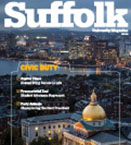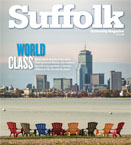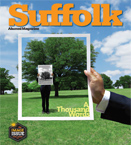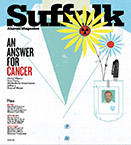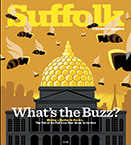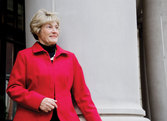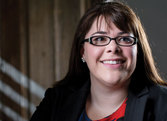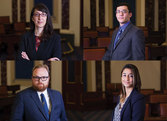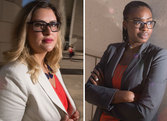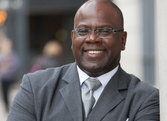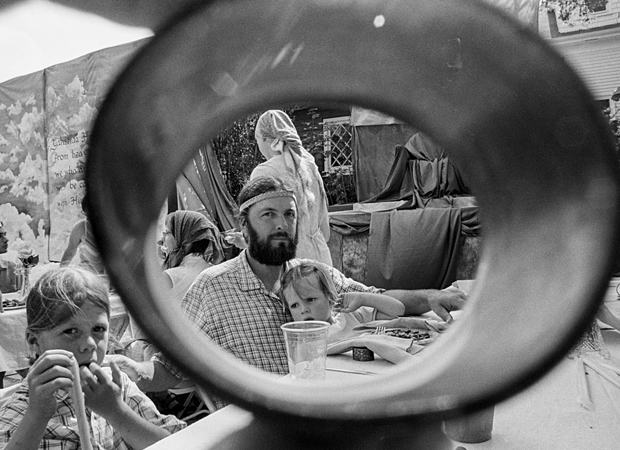
The ViewFinder
The work of Keiko Hiromi BA ’04 is defined less by her subject than the perspective she brings to it.
By Keiko Hiromi BA ’04
I can definitely say all I really need to know I learned in kindergarten. I was born Kamakura, Japan, a historic city that was founded in 1192 A.D. I grew up outside of Tokyo. I am an only child. My parents own a private kindergarten. My mother often took me to her work when I was younger. This is their 37th year since they started the kindergarten (the name is Hikari, meaning “Light”). They believe in forming a big family-like community. We say once you attend the kindergarten (and that includes the parents), we are family. Every time I go back to Japan, I still go there to help [do] whatever I can, and I am still learning everything I need to know in life there.
I had a one-year [high school] exchange program in a small town in Texas. When it was time for me to go to college, I knew I wanted to come back to the USA, but I wanted to be in the city. Attending Suffolk University was the reason I moved to Boston. Most of the time I attended Suffolk, I lived in [the] North End and walked to campus every day. My Suffolk life can be described as the best, [because of ] wonderful friends from around the globe and photography. I took a basic photography class with Ken Martin during my sophomore year. I was 20 years old. Ken planted my love for photography. Ever since, I have not looked back. I also majored in philosophy. I think it was in my Eastern Philosophy class [that] I learned one of my mantras: “Passion is something you are willing to suffer for.” This keeps my head up when I am in the dark.
I still keep in touch with Ken Martin. He is a photojournalist. Now I am also a photojournalist. I work with a news agency, Polaris Imaging, in New York, where I submit my news and current affairs photography. I am also represented by two fine art photography galleries, Panopticon Gallery in Boston and Gallery Bauhaus in Tokyo. My work was a part of Les Rencontres d’Arles 2012 in France and [was on display] at the Massachusetts State House. I was a finalist of the Massachusetts Cultural Council Artists Fellows Program in 2013.
When I had my first solo exhibition in Tokyo in 2009, I found out that my grandfather and my uncle were very serious amateur photographers. Both built darkroom[s] in their houses. My grandfather started a camera club in his company (Mitsubishi). My grandfather passed when I was 8 years old. I often wonder what he would say to me now [that] I am a photographer.
My subject matters are chosen solely based on my interest. If I hear something interesting to me, or have gone to a place that sparks my interests, I know it is [the] beginning of my new photo project. Photography has taken me to a closed Christian community, a mud hut in Liberia, backstage at a drag queen cabaret and ballroom dancing at Harvard University.
Whenever I see a photograph I really like, I take a mental note and try to apply what I like about the photograph (often the feel of the image) to my own photography. I like many photographers: Eugene Richards is my hero. Robert Capa is my photographic first love. Henri-Cartier Bresson is brilliant. Helmut Newton is inspirational, Diane Arbus is so insightful.
Photography is a point of view. What I photograph (the subject matter) is not that unique: It has been photographed before. What I can offer is my perspective, my personal experience, and [my] relationship [with those] I photograph. Every project is different, and the dynamic of each project is unique. I mainly photograph people. As I am a documentary photographer, how I relate to whom I photograph is very important. It is a very intimate process for me. If I want my subjects to accept me, I accept them first. If I want them to open up to me, I open up to them first. It is always a very fulfilling but sometimes exhausting process. I find myself very vulnerable as a person sometimes. Being allowed into someone’s life is a privilege, and the reward is the greatest.
Who I am and how I relate to others are direct contributions from my parents and their work ethic. I am very much my parents’ child. My parents are very hands-on teachers — a lot of field trips to museums and farm fields, exploring the world. (I guess you can say that is me; exploring the world with my photography.)
